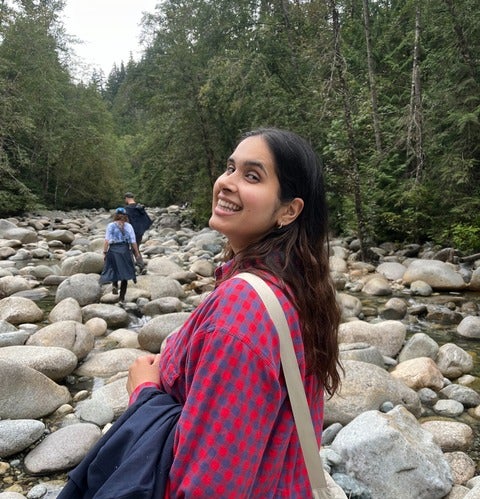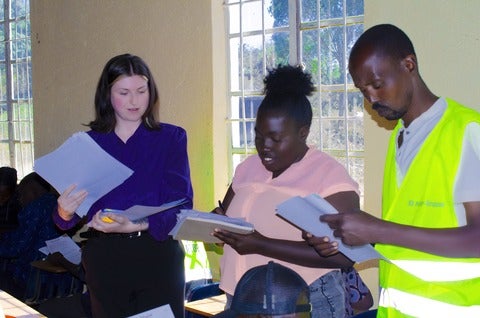Turbulent times like ours call for people who understand systems of violence and conflict, and who are prepared to build peace with justice. This involves identifying and transforming systems of violence, marginalization and oppression, including racist, gendered and colonial violence at home as well as around the world. Whether working locally or globally, Peace and Conflict Studies is committed to imagining, educating and ongoing learning that equips our graduates to pursue justice and peace.
PACS as a department is located on territory that is governed by the Dish with One Spoon Wampum and land promised to the Six Nations Confederacy in 1784 as part of the Haldimand Declaration. For more information, see Conrad Grebel University College's land acknowledgement and read about decolonization at the University of Waterloo's Office of Indigenous Relations.
A Vibrant, Interdisciplinary Graduate Program
The Master of Peace and Conflict Studies (MPACS) program is a coursework-based, professional degree that empowers students with knowledge and skills to contribute to nonviolent peacebuilding. Combining rigorous interdisciplinary scholarship with experiential learning opportunities, the program provides graduates with tools to understand sources of conflict, polarization, and systems of violence, as well as to imagine and initiate transformative peacebuilding. Our distinctive focus is on civil society and community-led change.
The master's degree is typically completed in 16 months (four terms), consisting of coursework, an optional internship placement, and practical skill development courses, with options for independent research. Part-time studies are also possible.
Understanding conflict
Recognizing conflict as an inescapable part of the human experience, and a potential vehicle for positive change at local, national, and international levels, this master’s degree offers a cutting-edge approach in which dynamic, sustainable, and creative solutions to conflict can be imagined, tested, and applied. Students learn with field-experienced faculty, developing their critical, analytical, and reflective thinking skills, and preparing to plan and implement effective programming, principled advocacy, and innovative peace initiatives.
Agents of peacebuilding
Equipped with interdisciplinary knowledge and practical skills of peacebuilding, MPACS graduates are ready for careers in the non-profit, public, or private sectors, as agents of peaceful change at community, institutional, and systematic levels. Common careers paths include: conflict management, community development, mediation and restorative justice, education, human rights work, research and advocacy, and social change entrepreneurs.
Events
Grebel Convocation 2026
Conrad Grebel University College proudly honors graduates who have lived and studied at Grebel while completing their University of Waterloo degree programs. This special Convocation ceremony takes place several weeks before the University of Waterloo Convocations, where the official degrees are conferred. It is a time for faculty, staff, students, families, and friends to come together and celebrate this significant achievement. We warmly welcome friends and families to join us for this celebration on Sunday, April 12, 2026, at 2:00 PM in the Humanities Theatre, University of Waterloo.
News
Julie-Ann Ellis-Bradley and her evolved approach to conflict and law
Julie-Ann Ellis-Bradley is a final year Master of Peace and Conflict Studies student at Conrad Grebel University College, affiliated with the University of Waterloo. Julie-Ann is an attorney who has worked in mediation and practiced law in Belize for over 17 years. In that time, Julie-Ann realized that navigating conflict is a critical life skill, and conflict management is a powerful tool to have in all relationships.
Simmi Hansra on unconditional acceptance in conflict transformation
Simmi Hansra (MPACS 2020) is a Master of Peace and Conflict Studies (MPACS) alum invested in conflict transformation through unconditional acceptance. Empathy and curiosity are centred in Simmi's approach to everyday life, and these principles support her in working to create a more peaceful and equitable world.
Glocal: How MPACS students brought their local experiences abroad
In October, Master of Peace and Conflict Studies (MPACS) students participated in an MPACS Internship Symposium hosted by the PACS Department. Eager to share lessons learned with fellow MPACS students, Grebel faculty and staff, Emilie, Theresa and Quinn reflected on the highlights and challenges they faced during their internships abroad.











